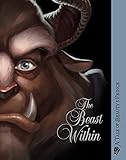Meta Learning Foundations
This P.O.R.T.A.L.S. Lesson Plan format is based on five foundational beliefs. (1) Students are capable of learning to direct their own learning. (2) Learning is situated in particular contexts and is best when motivated by authentic goals and outcomes. (3) Learning is most successful when it addresses both the strengths and challenges of individual learners. (4) Students learn about something (concept/idea/skill/process) and use a variety of cognitive and affective processes to accomplish that learning. (5) Building a learning community in the classroom/school benefits all learners.
Let’s look at these foundations one at a time.
1. Students are capable of learning to direct their own learning.
How do we know that?
We observe children learning and listen to the way they talk about learning.
- A. Even as preschoolers children use the vocabulary of learning: Here are some “meta” terms that preschoolers use: teached me, learned, think, actually, confused, what does that (word) mean?
- B. Students are drawn to certain topics and pursue them with passion
- C. Students learn things outside of formal learning contexts
- D. Students express their interests by making choices about favorite authors, stories, characters. Without explicit teaching, they can tell you about these favorites.
- E. Students show affective responses to their “successes” and “mistakes”.
There is a vast literature on terminology for Meta Learning.
A quick google search of the terms “self directed learning, independent learning, executive function and metacognition” produced hundreds of links, including an international annual conference on Self-Directed learning, several reviews of the literature, and some blogs devoted to meta learning. For example:
Teach Thought
27 Actions That Promote Self-Directed Learning
http://www.teachthought.com/learning/project-based-learning/27-actions-that-promote-self-directed-learning/
7 Characteristics of Independent Learners
http://www.aoacademy.com/blog/trends-and-tips/7-characteristics-of-independent-learners/
Skills for Life and Learning: Harvard University
http://developingchild.harvard.edu/resources/multimedia/videos/inbrief_series/inbrief_executive_function/
Even K Can Rate Their Own Confidence
http://blogs.discovermagazine.com/inkfish/2014/08/12/even-kindergarteners-can-rate-their-own-confidence/
An excerpt
Kids who did better at rating their numerical knowledge also scored higher on a school-based math test. This hints that skill with numbers might develop at the same time as the awareness of that skill develops.
Cantlon says this kind of research could help teachers. “Educators and researchers already know that children’s metacognition—their ability to assess their own learning and knowledge—is a powerful tool,” she says. “If children begin to keep tabs on what they don’t know, they can help direct their learning towards those areas.”
This tool may be available to kids as young as 5. That means teachers at every grade level might benefit from teaching kids to “think about their own thinking,” as Cantlon puts it. Someday, maybe those kids can even win a lot of money on a gameshow—Who Wants to Be a Millionaire will probably still be on.








